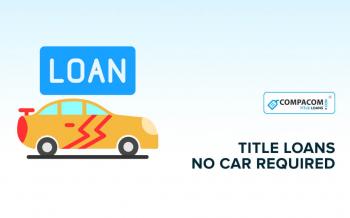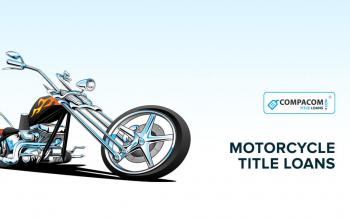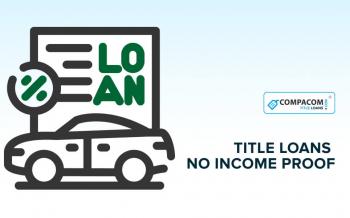What is Considered a Bad Credit Score?
Being labeled with 'bad credit' can feel like a heavy weight to carry. Simply put, it suggests that an individual has a history of missing or delaying bill payments, and there's a greater possibility they may keep doing so. This past behavior usually manifests as a low credit score, a numeric value resulting from a detailed analysis of one's credit transactions and behaviors.
The all-important credit score is generated based on the FICO scoring model and it falls anywhere between 300 and 850. If your score finds itself south of 580, it's generally stamped as 'poor' or 'bad.' Lenders use this score as a yardstick while determining if they should give you a loan or credit.
Several threads weave together to form your credit score. They include:
- Your track record of payments: Your punctuality (or lack thereof) in paying bills can significantly impact your score.
- The proportion of your credit limit you're using: Known as the credit utilization ratio, using a high percentage of your available credit can be a downer for your score.
- The lifespan of your credit history: The longer your credit history, the better it can be for your score, provided it's clean and free from negative incidents.
- Variety of credit types you possess: Having several credit types (like credit cards, retail accounts, installment loans, and mortgage loans) can pep up your score.
- Your recent credit activity: If you've been on a credit application spree recently, it could potentially pull your score down. Every new credit application causes a slight drop in your score that lasts a year.
It's essential to remember that a bad credit score isn't the end of the road. There are still alternatives available, like bad credit title loans with no credit check, which could act as a lifeboat in your financial sea.
Is It Possible to Apply for Car Title Loans with Bad Credit?
Yes, it is possible. While bad credit may close the door on most traditional loans, it doesn't lock you out of the car title loan market. A car title loan is a distinctive form of loan that uses your vehicle's title as security. Here, it's your car's worth that takes the spotlight, not your credit score.
In simpler terms, bad credit doesn't block your access to car title loans. So, if you're in a financial pinch and traditional lenders are turning a blind eye due to your credit score, a car title loan might just be the solution you need.
How You Can Take Out a Title Loan for Bad Credit
- Evaluate Your Vehicle's Worth
Determine the market value of your car as it influences the loan amount you can get.
- Spot a Reliable Lender
Find a trustworthy lender that offers car title loans. Look for positive reviews and feedback.
- Fill Out the Loan Application
Submit your application, either online or in-person, providing personal and vehicle details.
- Provide the Necessary Paperwork
Present required documents such as proof of income, proof of residence, a valid ID, and your car's title.
- Loan Approval and Agreement
Upon approval, review the loan terms thoroughly, paying special attention to the interest rate and repayment schedule.
- Get Your Cash
Once everything is approved and signed, the lender will typically deposit the loan funds into your bank account.
As always, ensure you completely understand the loan terms and have a solid plan for repayment before you proceed.
Documents to Obtain Bad Credit Car Title Loans
Applying for a car title loan with bad credit involves presenting certain documents. Having these ready can speed up your application process:
- Car Title: This is crucial as it establishes your ownership of the vehicle. The title should be in your name and clear of any outstanding liens.
- Valid Government-Issued ID: either a driver's license or passport will work.
- Income Proof: You can provide pay stubs, bank statements, or an employment verification letter.
- Residency Proof: Something that confirms your current address like a utility bill, lease contract, or mortgage statement.
- Vehicle Registration and Insurance: Proof of both are typically required by most lenders.
- Vehicle Photos: Some lenders may request photos of your car to evaluate its condition. You might need to snap pictures of the car's interior, exterior, and odometer.
Even with these requirements, the process to secure a car title loan is usually more streamlined and quicker than traditional loans.
Is Credit Check a Necessity for Auto Title Loans?
A common question among prospective borrowers pertains to credit checks and their role in the process of securing an auto title loan. The answer, in short, is that it varies.
While traditional loans almost always require a credit check, many auto title loan providers do not necessarily need to check your credit history. The main reason is, that the loan is secured by the value of your vehicle and not your past borrowing history.
However, some auto title loan providers may still perform a credit check to get a more comprehensive understanding of your financial status. Even if a credit check is conducted, having bad credit does not disqualify you from getting an auto title loan. Your vehicle's value is often a more influential factor in the approval process.
Always make sure to inquire about a lender's specific process before applying for an auto title loan. Remember, transparency is key when entering any financial agreement.
How Much You Can Get from a Title Loan with Poor Credit
Car title loans primarily base the borrowing amount on the worth of your vehicle. On the whole, you can get up to 50% of your vehicle's total value.
Your stable income and the lender's specific rules can have an influence. Some lenders may also assess your vehicle's condition, its mileage, and the demand for your specific car model in the second-hand market.
As each lender has their lending policies, it's beneficial to communicate with them directly, or use their online loan calculators, if available, to gauge the possible loan amount.
While the prospect of securing the maximum loan might seem attractive, it's more prudent to borrow only what you need and what you can comfortably repay. This approach can help you avoid financial strain and the potential risk of losing your vehicle.
Reasons to Choose a Car Title Loan over a Traditional Loan
Car title loans offer several advantages over other forms of financing. Firstly, their approval process is much simpler and quicker. By providing collateral in the form of your car's title, qualifying for a car title loan becomes more accessible, even if your credit score isn't perfect. In many cases, lenders won't even check your credit score or report. As long as you can demonstrate a steady income and possess a car valued higher than the loan amount requested, approval is likely.
Secondly, car title loans are ideal when you need funds urgently. With a car title loan, once you're approved, you can usually get your hands on the cash on the same day or in a few business days. This makes it an excellent choice when you're in a pinch and need to tackle unforeseen expenses.
Also, you can keep driving your car while repaying the loan. Only in the event of default and repossession by the lender would you lose access to your vehicle.
These advantages make car title loans an attractive option for those seeking a quick and accessible way to obtain funds without the stringent credit checks or immediate loss of their vehicle. However, it's essential to consider the interest rates and ensure that you can meet the loan repayment terms to make an informed financial decision.
Considerations Before Taking a Title Loan for Bad Credit
Here's a checklist of questions to ask yourself before applying for a title loan with bad credit:
- Can You Handle the Repayments?
- Got the Interest Rates Figured Out?
- Are There Prepayment Penalties?
- Have You Checked Out the Lender?
- Considered Other Options?
- Thought About Consulting a Financial Advisor?
- Have Read the Fine Print?
- Prepared for the Worst Scenario?
Don't rush into a decision. Take your time to assess your needs and possibilities.
Alternative Online Loans for Bad Credit
If you're still on the fence about using your car title as collateral or if you're simply exploring more borrowing options, here's a list of some other online loans that might suit your needs:
- No Credit Check Loans: Some lending platforms online don't demand a credit check. Instead, they're more interested in how much you earn and whether you're steadily employed.
- Direct Deposit Loans: These are essentially short-term loans that send the cash directly into your account once your application gets the green light.
- Same Day Loans: As the name hints, these loans promise cash on the same day you apply. A number of lenders offer this fast-track service to those with bad credit.
- Personal Loans for Bad Credit: Certain lenders cater specifically to individuals with low credit, offering personal loans that can be used for a range of purposes, often coupled with manageable repayment plans.
- Payday Loans for Bad Credit: These are short-term loans typically payable by your next payday. While payday loans usually bypass a credit check, they're known to carry higher interest rates.
- Credit-Building Installment Loans: With these loans, you borrow a specific sum, which you then pay back over an agreed number of installments. Some online lenders extend installment loans to folks with bad credit.
Closing Thoughts: Is a Bad Credit Title Loan the Right Move for You?
Dealing with financial matters while carrying a bad credit score can be challenging. A title loan might seem like an attractive option, offering a quick solution and an easier approval process.
However, take some time to think about your own circumstances. Can you comfortably handle the repayments? Do you fully understand the interest rates and are you okay with them? Have you explored all your other options?
Keep in mind, with a title loan, your car stands as a guarantee for the loan. It's highly recommended to engage with a financial advisor before diving into such commitments.











You are about to post a question on compacom.com:
Any comments or reviews made on this website are only individual opinions of the readers and followers of the website. The website and its authors team are not responsible, nor will be held liable, for anything anyone says or writes in the comments. Further, the author is not liable for its’ readers’ statements nor the laws which they may break in the USA or their state through their comments’ content, implication, and intent.